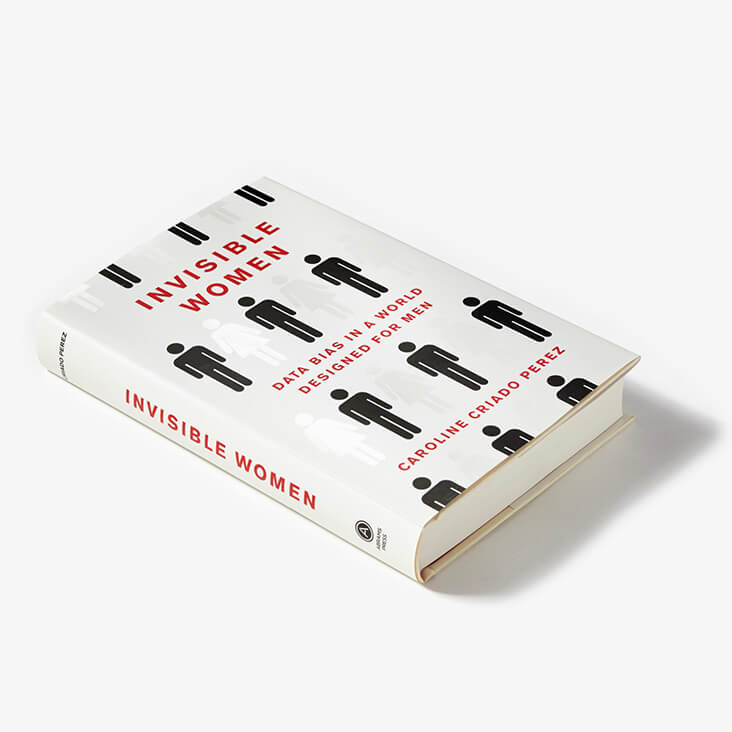Weird names; Childless Chinese; Banned books unite: Newsletter 17 January 2024

Newsletter 27: Making people say “huh?”, Fairly trained AIs, radical publishers, plus three people to follow, three books to read, and a head start on your next book.
What the heck IS that?
The names or titles of some things just make you sit up and marvel. They create insane curiosity.
What did you think the first time you heard there was a nonfiction book called Invisible Women?
Almost certainly, you said, “What the heck is that about?” (Maybe you used some stronger word that means the same as “heck.”) It’s just a surprising set of words to be in a book title. It’s intriguing enough to make you ask the next question. And it delivers, too: once you know what the book is about (gender bias in everything data touches), it’s easy to make the connection when you talk about it to somebody else. It sticks in your mind.
Not all great books have titles like this, but a lot of them do . . . and if the books are any good, those titles really help them stand out clearly in the reader’s (and recommender’s) mind.
How to Lie with Statistics. What? A book about lying?
Bonk. Is that a book about sex? (It’s actually about how researchers do sex research, and it’s funny as hell.)
Move Fast and Break Things. Sounds reckless . . . and fascinating.
Guns, Germs and Steel. Why empires grow. Germs don’t seem to belong with guns or steel, and that is precisely the point.
The Subtle Art of Not Giving a F*ck. Doesn’t sound subtle. Huh?
How about The Ultimate Question, What Would Google Do?, STFU, Naked Conversations, Small is the New Big, or Why Business People Speak Like Idiots. Aren’t you already curious about what these books are about?
The people who invented the For Dummies brand were certainly onto something. Admit it, the first time you heard about a book with that title, weren’t you intrigued?
Naturally, shock value isn’t the only thing that matters in a brand. But if you can get it, it does a lot of the work up front, by attracting attention. That only succeeds if you can connect that brand to a product or service that is equally good — but when it works, it’s massive.
It’s not just books of course. Did you know what these products were the first time you heard about them? Did you want to?
Twitter.
Flomax.
(If you’re curious, they are: a product to allow women to urinate standing up, the former brilliantly intriguing name of a social network, a combination Italian restaurant/food store, an AI search engine, an ebook store, and a drug to help with your prostate.)
The physicist who named quarks surely understood this, too.
If you have to name something, you have a choice.
You can call it what it is. International Business Machines. General Motors. British Airways. Internal Revenue Service. No one will be confused. But no one will be intrigued, either.
Or you can figure out the weirdest combination of words or sounds that connects to your idea — a combination that’s unique and intriguing and makes people think “What the heck is that?”
That means more work for you in marketing. But it also means an idea that, once introduced, will stick in the mind of your audience forever.
News for authors and others who think
A new initiative called “Fairly Trained” will certify AI tools that were trained on content for which they explicitly obtained permissions. Will that matter? If the tools are inferior, no. If the AI companies lose their legal rights to ingest web content because of court judgments, then yes.
Amazon’s audiobook subsidiary Audible laid off 5% of its staff. This is a sign of the maturity of the audiobook market, not competition. Expect Audible’s focus to shift from growth to efficiency.
China told its citizens to have fewer babies. They did. Now there aren’t enough Chinese babies and its citizens are fine with that. Totalitarian social engineering is no match for human nature.
Skyhorse, publisher of books that other publishers find too hot to handle, is acquiring Regnery, a publisher of conservative books. Banned books are hot — regardless of which side of the political spectrum is trying to ban them.
Three people to follow
Toni Robino. The most thoughtful ghostwriter I ever met.
Dan Pontefract. Work is confusing these days. Dan will unconfuse you.
Duncan Chapple. Analysts are a pain in the ass. Duncan explains how to work with them.
Three books to read
Fuzz: When Nature Breaks the Law by Mary Roach (W.W. Norton, 2021). Animals don’t follow the rules. And Mary Roach is always entertaining.
Red Team Blues by Cory Doctorow (Macmillan, 2023). A cryptocurrency thriller.
Words Onscreen: The Fate of Reading in a Digital World by Naomi Baron (Oxford University Press, 2015). Why deep reading is doomed. Do you dare to read it as an ebook?
Idea plug
If you’re ready to write a book, you need to start, not by writing, but by focusing on the idea and the title.